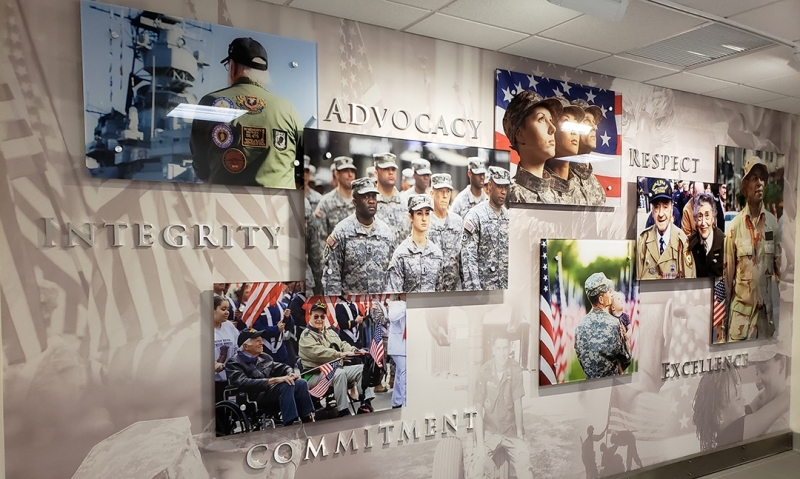
American Legion, VA team up during ROAR visit in Los Angeles
American Legion staff members recently visited the Los Angeles VA Regional Office, one of about a dozen annual Regional Office Action Review (ROAR) trips used to help steer improvements at the sites.
Both organizations approached the meeting as a way to make improvements, where needed, so that veterans can receive proper care.
“This is a collaborative effort I would call it, by VA and The American Legion, initiated by the Legion to essentially help us improve our product, our service,” said Emmett O'Meara, assistant director at the Los Angeles VA office. “The American Legion has long been a partner and advocate for both veterans as well as VA. And their advocacy helps us provide better services, and they are a part of our process particularly the compensation process.”
Joining O’Meara at the meeting was Jamie Cannon, a veterans service center manager at the VA office. The American Legion was represented by Executive Director Lou Celli, Veterans Affairs and Rehabilitation (VA&R) Division Director Chanin Nuntavong and VA&R Claims Deputy Director David Spivey, a former VA director.
“Although I never managed a large office as this one, I could well imagine the challenges that you face, and we are fully sympathetic to your challenges. It’s not easy,” Spivey said. “We want to know what are the real concerns, and essentially what can we do to help.”
During the briefing, Celli emphasized the collaboration effort.
“You know the things you tell us that you’re having challenges with,” Celli said. “We translate that into policy guidance that will help benefit the entire organization, so we do consider ourselves part of your team as well.”
The ROAR visits evolved from a 2002 survey called “I Am Not a Number,” which gave birth to the System Worth Saving (SWS) program. The annual SWS report delivers The American Legion’s annual assessment of VA health-care facilities to Congress.
That same model is still being applied to ROAR — similar to SWS visits, American Legion experts meet with VA Regional Office administrators and employees. The information is gathered, analyzed and used to advocate for improvements, including in The American Legion’s testimony before Congress.
“We think that it’s vital that we do so,” Spivey said. “For a number of reasons, one of which is Congress asks us to participate in meetings and asks us to prepare testimony on various occasions.”
Celli points out that the individual discussions play a critical role. “We take this part very seriously. And we want to hear from the folks that are being trained to look at these claims and find out if there’s a way that we can model after what you do here, or we can take a model from some other part of the country and help introduce that, so that everybody is on the same sheet of music,” he said.
The team visits a mixture of large, small and medium facilities and tries to vary the mix geographically. “We want a cross section of what’s really going on,” Spivey said.
The Los Angeles office is significant because it has the highest volume in the country and supports a very dense population of veterans.
Cannon oversees all claims that come into the area. “I love my job because I get to give benefits to veterans and their rightfully earned benefits,” she said. “So we want to make sure we are doing the right thing for every claim.”
Such American Legion visits are welcome in order to better serve veterans, Cannon said.
“I don’t see any walls, barriers, there’s open communication and if something is broken, if a claim was wrong, there’s no hesitation to say, ‘Hey Jamie, look into this,'” she said. “And then there’s an easy dialogue, and I think that I passed that down to the employees all of my decision review officers have great relationships as well with them.”
The findings of ROAR reviews go beyond the facility being visited.
“When five different offices tell us the same thing then that’s indicative of a systemic problem VA wide and that’s what we report back when we testify on Capitol Hill,” Celli said. “We are not here to call out any particular RO, we’re just looking for systemic problems VA wide.”
